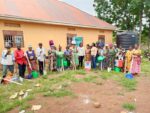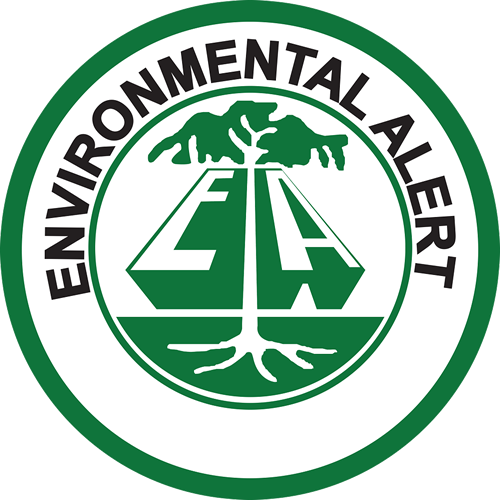
0-4608×3466-0-0#
Resilient Communities to Health and Climate Change Hazards in Uganda (RCHCH-U)
Environmental Alert in Partnership with Südwind is implementing the project Resilient Communities to Health and Climate Change Hazards (RCHCH) with support from the Federal Ministry of the Republic of Austria. The project is expected to last for 24 months and aims at supporting health centers, schools, and communities (especially women, children in schools, and the elderly) – in the disaster-prone and conflict districts of Kasese and Ntoroko of the Rwenzori region – that are faced with climate-induced disasters such as mudslides, bursting of riverbank,s and flooding.
The project proposes to improve energy and sanitation and hygiene services in schools, health centers and communities through construction and/or rehabilitation of WASH facilities; awareness and education of communities and Village Health Teams (VHTs); and promote livelihood options to reduce poverty and food scarcity through direct support and capacity enhancement of communities and agricultural extension workers. In addition, the project will utilize existing local structures and
EA-hosted Networks to strengthen and advocate for improved public administration towards improved WASH, health, food security, and living standards in the communities. Improving WASH services in these two districts and targeted communities will reduce WASH-related diseases, in addition to the livelihood component, which will contribute to increased/diversified household incomes and food security.
The intended outcomes of the project are in line with and will contribute to SDG 1 “No poverty”, SDG 3 “Good health and wellbeing”, SDG 10 “Reduced inequalities”, and SDG 17 “Partnerships for the Goals”. It will also contribute to Uganda’s Vision 2040 and to the recently approved National Development Plan IV
Strategic Direction for Uganda (2025/26-2029/30).
Above all, the interventions and expected outcomes are aligned to the Special Directive on combating poverty in third countries by the Federal Minister for Social Affairs, Health, Care, and Consumer Protection of the Austrian government (BMSGPK).
Project Objectives
To build the resilience of vulnerable groups faced by multiple crises for improved health and food security in the Rwenzori region in Uganda.
Specific Objectives
- To empower vulnerable groups in Kasese and Ntoroko districts in the Rwenzori region to adapt to climate change shocks by the end of September 2026.
- To improve health services in selected health centers, schools, and communities in Kasese and Ntoroko districts by the end of September 2026.
- To strengthen the advocacy capacity of CSOs and local authorities in Kasese and Ntoroko districts for improved public administration of health services & food security in the region by the end of September 2026.
The expected outcomes are:
|
Oc1 Vulnerable groups in Kasese & Ntoroko Districts in the Rwenzori region are empowered to adapt to the climate change shocks in their region. |
At least 30% of the population living in the targeted project areas (Esp, Women, the Elderly, and the Disabled) have improved access to food and livelihood options. |
|
Oc2 Improved health services in health centers, schools, and communities in Kasese and Ntoroko districts in the Rwenzori region |
Number of people with improved access to WASH & amp; Energy services (20,000) |
|
Oc3 Capacity of Local Authorities and Civil Society strengthened in advocacy for improved public administration of health services & food security in the region. |
Number of issues supported and/or addressed by key actors. |
